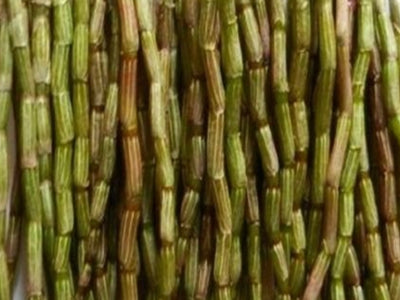
Embracing seasonal eating adds excitement to our culinary adventures while mindfulness remains essential on this delicious journey.

Hi, it's Adriana. I want to shed some light on the concept of Seasonal Eating as we transition from the end of summer to the beginning of fall. Just as the seasons change, our dietary preferences naturally shift, leading to cravings for specific foods.
Many individuals often equate health with having a chiseled physique, characterized by six-pack abs and bulging muscles. However, true health extends far beyond mere appearances. It encompasses the well-being of your mind, the harmony within your gut, the radiant condition of your skin, your energy levels, and, most importantly, your overall happiness. It's a holistic concept that embraces every facet of your physical and mental existence.
As someone deeply passionate about nutrition, I want to shed light on the importance of Seasonal Eating, one that can benefit us all, no matter where we find ourselves in the world. It's more than just a culinary trend; it's a philosophy that has the power to enhance our health and contribute to a more sustainable lifestyle.
What makes seasonal eating even more fascinating is how it connects us with local agriculture. When we opt for foods that are in season, we're not just nourishing our bodies; we're also supporting local farmers and reducing the environmental impact of food transportation. It's a win-win situation that lets us give back to our communities while taking care of our planet.
In many foreign countries, seasonal eating isn't a choice—it's a way of life ingrained in their culture. For generations, people have recognized that nature provides exactly what our bodies need at different times of the year. They honor the natural cycles of crops, and their diets naturally adjust to the changing seasons.
So, let's explore the beauty and wisdom of seasonal eating together, shall we
Growing up in Albania (home to Për Në Skin) seasonal eating was a way of life. I have vivid memories of eagerly anticipating the arrival of specific vegetables during their respective seasons. Each change in the weather brought a fresh wave of flavors and excitement to our meals. It was a time-honored tradition, and it made our food not just sustenance but a true celebration of nature's bounty.
As I've grown older and become more health-conscious, I've found myself reflecting on the modern convenience of having every fruit and vegetable available year-round. This convenience, while tempting, led me to ponder the wisdom of this abundance and to appreciate the inherent logic behind seasonal eating. Nature, you see, has a purpose for each food's season – they thrive when they are needed the most.
Now, I'm not suggesting a complete upheaval of our lifestyles. Instead, I invite you to embark on your own journey of seasonal eating. Take a moment to revisit the flavors and memories that have shaped your culinary path. Consider how embracing the wisdom of choosing foods in season might infuse your well-being with vitality and reconnect you with nature's rhythms.
With each mindful step we take on this culinary expedition, we not only nurture our personal health but also pay tribute to the planet we call home. It's a journey that holds global significance, one plate at a time.


As autumn arrives, it brings a harvest of some of my favorite foods.
In certain regions, you'll find lion's mane mushrooms more readily available during late summer and fall. They thrive on hardwood trees during these seasons, but the good news is that you can enjoy them in various culinary delights whenever you have access.
Lion's mane mushrooms are not only known for their unique flavor and texture but also for their potential benefits to mental health—a particularly valuable quality as the days grow shorter and the weather colder. These mushrooms have been associated with supporting cognitive function and promoting overall mental well-being, making them an excellent addition to your fall and winter diet.
This quality can be particularly advantageous during the darker and colder months when maintaining mental health is crucial. Incorporating lion's mane mushrooms into your meals may help support your cognitive and emotional resilience during these seasonal transitions.
Now, let's talk about figs. These delightful fall fruits have a sweet and slightly nutty flavor that complements both sweet and savory dishes. Figs are a good source of dietary fiber, which supports digestive health. Whether enjoyed fresh or dried, they add a burst of flavor to salads, cheese platters, or desserts.
Apples are another fall favorite. Their crisp and refreshing nature makes them an ideal snack, but their versatility shines in pies, crisps, salads, and more. Apples are rich in dietary fiber, aiding in satiety and digestion. They also provide a healthy dose of vitamin C, boosting your immune system.
Pumpkins aren't just for carving spooky faces. They're a nutritional powerhouse that can be roasted, mashed, or blended into soups, pies, and smoothies. Pumpkins are particularly rich in vitamin A, vital for vision and immune health. They're also an excellent source of dietary fiber.
As for sweet potatoes, their vibrant orange hue signifies a treasure trove of nutrients. Loaded with vitamin A for skin and vision health, they also offer vitamin C and potassium for overall well-being. Roasting brings out their natural sweetness, making them a delicious addition to fall meals.
Finally, butternut squash, with its creamy texture and sweet flavor, is a beloved ingredient in fall dishes. It's perfect for soups, risottos, and roasted vegetable medleys. This squash variety is packed with vitamin A, dietary fiber, and other essential nutrients.
These fall foods not only delight the palate but also provide essential nutrients for your well-being. Embrace the season by incorporating these delicious ingredients into your meals. Feel free to include farm-fresh red meat, poultry, and seafood in your diet to nourish both body and soul. Enjoy the rich tastes of autumn!


